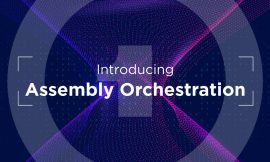When you apply for a job, odds are an AI program will examine your resume before it reaches an actual person. From the point of view of a business or HR professional, it’s easy to see the appeal of AI recruiting – it can parse through resumes at an inhuman rate and reduces human error stemming from assumptions, mental fatigue, and certain types of bias.[1] However, the candidate experience with AI recruiting is much different.
When a candidate creates a resume these days, they need to consider the AI software acting as a gatekeeper between them and the recruiter. AI recruiting software is designed to exclude unqualified candidates; however, qualified candidates can fall through the cracks if their resumes don’t have the right keywords or skills listed for the AI program to read.
How should candidates approach the evolving job-hunting experience as AI continues to shape a portion of the recruiting world?
A Word About Bias and AI Recruiting
Bias, in all its forms, is impossible to eliminate entirely. We tend to like people similar to ourselves (affinity bias), so hiring decisions sometimes come down to choosing the candidate who feels the most familiar or similar.[2] Other types of bias include affect heuristics (rushing to conclusions for the sake of saving time), confirmations bias (a subconscious disposition to seek evidence confirming our initial impression), and negative emphasis bias (judging a person based on irrelevant qualities like height, hairstyle, and weight, or personal tendencies).
Many types of unconscious biases can hinder the hiring process, but limiting their effect is possible. Training recruiters to recognize bias, using a “blind resume” system, and avoiding unstructured interview questions are just a few useful strategies. Another strategy is AI recruiting.
However, AI recuring is not infallible. The software will only be as good as the people designing it. Amazon, for example, scrapped a machine learning and AI recruitment program after finding out it favored male candidates over female candidates.[3] Other companies find similar issues when using their historical data as a baseline for their current AI hiring program. If the business has not historically hired a diverse workforce, the program will learn to perpetuate the status quo, actively working against creating diversity within the organization.[4]
With so much research supporting the benefits of DE&I, businesses are actively working to eliminate hiring bias, whether human or AI. The ongoing solution involves constant refinement of AI algorithms and continued trust in professional recruiters and HR teams. AI software is best used as a tool to help recruiters rather than a program to dominate their work. The same can be said for the candidate – when you know how the software works, candidates can also benefit from AI recruiting.
Tips for Candidates
For candidates, the most important step is to create a resume that speaks true to your experience and skills. AI recruiting software is designed to do the same thing that a human recruiter would do, so be sure to use key terms relevant to the position, list relevant experience, use accurate dates, and focus on specific skills that highlight an area of expertise.
Regarding AI recruiting software specifically, the tips below should help candidates craft a resume that is most likely to find its way into the hands of a recruiter:[5]
- Read through the job description for ideas on the keywords and skills the AI software is most likely to look for.
- Be descriptive – AI recruiting software uses natural language to learn over time and will be able to spot slang, typos, and excessive adjectives. It will also recognize institutions you list on your resume, so be sure to include the full names of businesses where you’ve worked.
- If you’re trying to change careers, AI recruiting software will most likely prevent your resume from reaching a recruiter because of a perceived lack of qualification. Focus your resume instead on skills and projects, and also consider old-fashioned networking to get your foot in the door.
AI Recruiting Isn’t Perfect, But It Can Help Find Your Next Job
On its own, AI recruiting software isn’t perfect. Using the right keywords, a candidate could trick the algorithm into thinking they have the necessary qualifications and experience to fit the job even if they’re unqualified. It’s up to human recruiters and HR professionals to ensure that the best candidates are the ones who get the job.
However, understanding the purpose behind AI recruiting software can benefit candidates just as much as recruiters. To get more tips on crafting a winning resume or to learn more about how AI recruiting can help you find your next job, visit https://www.allswell.com/.
[1] https://www.cio.com/article/189212/ai-in-hiring-might-do-more-harm-than-good.html
[2] https://thrivemap.io/hiring-bias/
[3] https://www.reuters.com/article/us-amazon-com-jobs-automation-insight/amazon-scraps-secret-ai-recruiting-tool-that-showed-bias-against-women-idUSKCN1MK08G
[4] https://www.forbes.com/sites/forbeshumanresourcescouncil/2021/10/14/understanding-bias-in-ai-enabled-hiring/?sh=27059b367b96
[5] https://greatresumesfast.com/blog/artificial-intelligence-in-recruiting-tips-for-preparing-a-resume-for-ai-and-humans




